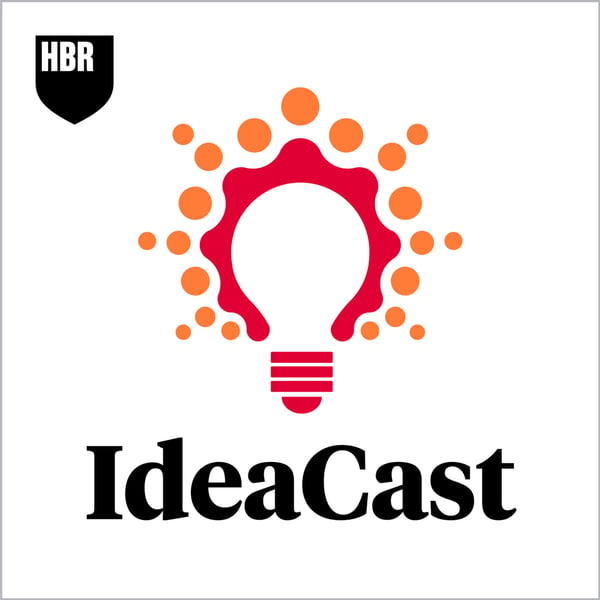Dematerialization and What It Means for the Economy — and Climate Change
HBR IdeaCast
Harvard Business Review
4.4 • 1.9K Ratings
🗓️ 17 September 2019
⏱️ 28 minutes
🧾️ Download transcript
Summary
Transcript
Click on a timestamp to play from that location
| 0:00.0 | When leadership advice feels like buzzwords and platitudes, it's time to get real. |
| 0:05.9 | HPR's podcast Coaching Real Leaders brings you behind closed doors as Muriel Wilkins coaches anonymous |
| 0:11.9 | leaders through raw honest career questions |
| 0:14.6 | that we all face. |
| 0:15.9 | Listen and follow coaching real leaders for free |
| 0:18.3 | wherever you get your podcasts. Welcome to the HBR Ideacast from Harvard Business Review. I'm Kurt Nickish. The industrial era brought an unbelievable rise in human prosperity. |
| 0:50.6 | As economies grew and standards of living climbed ever higher, forests were cleared, soil |
| 0:56.2 | was stripped and oceans were emptied. |
| 0:58.8 | When the United States celebrated the first Earth Day back in 1970, people were afraid the world would soon run out of food and other resources, burning it up like |
| 1:08.0 | flash paper, gone forever. But that seemingly unstoppable tide could be turning. |
| 1:14.0 | Today's guest has been studying a surprising new trend of dematerialization. |
| 1:19.0 | Thanks to new technologies and digitization, |
| 1:22.0 | some national economies are managing to grow at the same time |
| 1:26.6 | they use less material. Now this counterintuitive trend is not happening fast enough to stop the likes of climate change, but it offers some hope that future economic prosperity may not damage the environment as badly as before. |
| 1:41.0 | As part of covering climate Now, a global collaboration of more than 220 news |
| 1:46.7 | outlets to strengthen coverage of the climate story, we're talking today with |
| 1:50.9 | Andy McAfee. He's a principal research scientist at MIT and the co-founder |
| 1:56.0 | of the Initiative on the Digital Economy there, and he's the author of the book More From Less, |
| 2:01.8 | the surprising story of how we learned to prosper using fewer resources |
| 2:06.3 | and what happens next. |
| 2:08.3 | Andy, thanks for coming on the show. |
| 2:10.0 | Hey, thanks for having me. I called it counterintuitive. |
... |
Transcript will be available on the free plan in -2023 days. Upgrade to see the full transcript now.
Disclaimer: The podcast and artwork embedded on this page are from Harvard Business Review, and are the property of its owner and not affiliated with or endorsed by Tapesearch.
Generated transcripts are the property of Harvard Business Review and are distributed freely under the Fair Use doctrine. Transcripts generated by Tapesearch are not guaranteed to be accurate.
Copyright © Tapesearch 2025.

